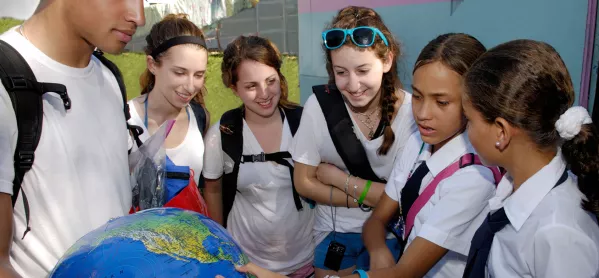Making language lessons fun, staging foreign film nights with exotic food laid on, and focusing on high-value language and transferrable structures to make it easier for pupils to have conversations in the language they are learning.
These are just some of the ways in which a minority of schools have managed to go against the grain and boost the uptake of languages GCSEs.
At the end of last year, the Department for Education admitted that the government was “struggling hugely” with the decline in GCSE languages.
And figures from the British Council show that nationally the proportion of GCSE candidates taking at least one language has dropped to 46 per cent (down from 76 per cent in 2002). This has been put down to budget cuts, lack of quality teachers and attitudes surrounding Brexit, among other factors.
Beating the decline in languages
But Tes research has identified at least 37 schools that have boosted uptake by 50 percentage points between 2013 and 2017, according to the latest available figures.
One such school is Long Field Academy, in Melton Mowbray, Leicestershire, where assistant principal and languages teacher Saj Raithatha said it was “a priority” that lessons are fun.
He said: “When I was at school we used to sit in the classroom working through a textbook and conjugating verbs, but nowadays there has to be a balance between that sort of academic learning and getting pupils physically involved through games and music and sport.”
At Harris Academy Bermondsey, in South London, a whopping 100 per cent of pupils in Year 11 chose to sit at least one language at GCSE in 2017, compared with 23 per cent in 2013. And part of the school’s success has been in staging cinema nights.
Headteacher Rebecca Iles-Smith said 60 per cent of pupils were eligible for free school meals but that being in a deprived area was no barrier to teaching languages.
She said: “Selling languages to them was a task in itself because, unlike science or history, there are less obvious links with a future career pathway, such as medicine or law, and initially we were often met with students’ frustration and a sense that they ‘didn’t need it’ for their futures.”
At Frederick Bremer School, a community comprehensive in Walthamstow, East London, headteacher Jenny Smith has overseen a rise in language candidates from 19 per cent to 80 per cent in the past five years, and said that it was down to a “dynamic” team of five teachers who she is “very lucky” to have.
She said: “The quality of language teaching wasn’t so good around five years ago, so a number of people in the department had to be challenged, and there are only two teachers left from the old team, who were quite new when I arrived. It was about getting the right people teaching the right subjects and in the right way.”
You can read more about the schools, and about the plight of modern foreign languages in this week’s Tes magazine, available in all good newsagents. To download the digital edition, Android users can click here and iOS users can click here.




